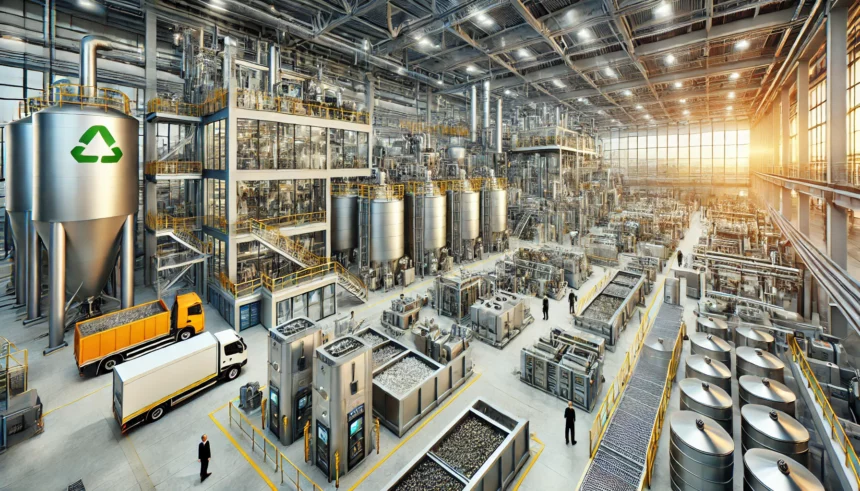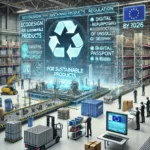A Fresh Look at Advanced Recycling
Advanced recycling goes far beyond traditional methods. It includes various innovative processes that turn waste into high-quality recycled materials and chemicals. This approach is reshaping how we handle waste and is crucial for sustainable development.
Key Advanced Recycling Methods
Advanced recycling uses several cutting-edge technologies, including:
- Gasification: Converts waste into syngas (hydrogen and carbon monoxide) and CO2 through partial oxidation at high temperatures.
- Incineration with Carbon Capture and Utilisation (CCU): Burns waste to generate energy while capturing CO2 for industrial use.
- Pyrolysis: Decomposes waste at high temperatures without oxygen, turning it into liquid fuels, waxes, and valuable chemicals.
- Thermal Depolymerisation: Breaks down complex polymers into simpler hydrocarbons using heat and pressure.
- Solvolysis: Uses solvents to break plastics into monomers and other chemical feedstocks.
- Dissolution: Dissolves plastics in a solvent and recovers them without breaking their chemical structure.
- Enzymolysis: Uses enzymes to degrade plastics into their basic monomers.
- Extrusion: Melts and reforms plastics into new products, often used as a preparatory step in other recycling methods.
Waste Streams and Outputs
Advanced recycling processes various waste streams, such as:
- Plastics: Including polyethylene (PE), polypropylene (PP), polystyrene (PS), polyethylene terephthalate (PET), and polyvinyl chloride (PVC).
- Rubber: From tires and other sources, converted into fuels and secondary valuable chemicals like carbon black.
- Textiles: Synthetic fibers or blends from clothing and other products, separated and broken down into monomers and chemicals.
These processes produce high-value products like:
- Polymers and Monomers: Essential for new plastic products.
- Naphtha: A key feedstock for petrochemical industries.
- Industrial Chemicals: Solvents, lubricants, and other chemicals.
- Alternative Fuels: Pyrolysis oil and syngas used as energy sources.
Benefits Across Industries
Advanced recycling supports many industries by providing sustainable alternatives to traditional methods. Key sectors include:
- Energy Production: Using pyrolysis oil and syngas as alternative fuels.
- Petrochemical Industries: Relying on recovered naphtha and secondary chemicals.
- Plastics Manufacturing: Utilizing high-purity polymers and monomers.
- Chemical Synthesis: Producing chemical feedstocks.
- Waste Management: Addressing complex waste streams like contaminated and multi-layered packaging.
Global Capacity and Growth
According to a 2024 nova-Institute report, over 340 advanced recycling plants are operational or planned worldwide, with a total capacity of 1,477 kilotons per year. Europe leads the market with more than 60 plants, reflecting its commitment to sustainable waste management and a circular economy.
Future Trends
The market for advanced recycling is set to grow significantly. Projections indicate that by 2027, Europe’s input capacity will more than triple, while global capacity will double. This growth is driven by:
- Investment: Increasing funds for new technologies.
- Technological Advancements: Continuous innovation in recycling methods.
- Supportive Policies: Stringent recycling targets, like the EU’s goal to recycle 55% of all plastic packaging waste by 2030.
Challenges and Opportunities
Advanced recycling faces challenges such as high operational costs, technological complexities, and the need for extensive infrastructure. Regulatory uncertainties also pose obstacles. However, these challenges create opportunities for innovation and collaboration among technology providers, waste management companies, policymakers, and researchers.
Conclusion
The future of advanced recycling is bright. Continued advancements and adoption will drive growth, helping to achieve global sustainability goals and promoting a circular economy. By addressing current challenges with innovative solutions and supportive policies, advanced recycling can transform waste management and resource efficiency worldwide.
















